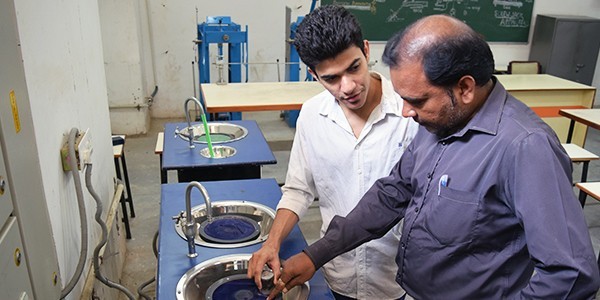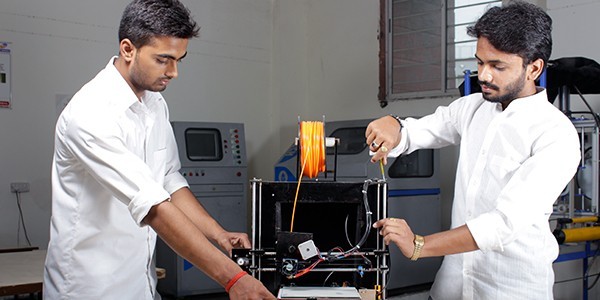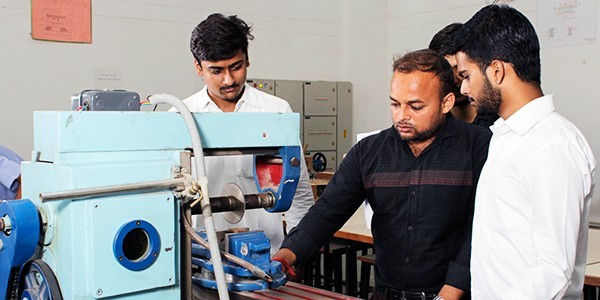Electronics and Communication Engineering
Educational Objectives
- Practical implantation of theoretical knowledge through state-of-the-art laboratories and workshops.
- Application-based experiences and problem-solving skill development through mandatory training or/and projects.
- Garnering depth knowledge of subjects in the area of Electronics and Communication Engineering along with trending technologies with the help of a vast number of available books, international e-journals, research and scientific papers etc.
- Emphasis on practical trainings and internships for professional training, practical applications and education on real-time problems
Opportunities forElectronics &Communication Engineers
We are providing opportunities to the students to the latest trends in the field of Electronics and Communication Engineering and give them exposure to the industry based Problems and imparting them the value education to produce globally competent Electronics Engineersproficient of extending and fast growingindustrial services.
Electronics & Communication engineers may work for:
- Advance VLSI in Semiconductor Industries
- Areas of signal processing
- Areas of image processing
- Research Scientist
- Deep Learning and cloud computing
- Immerging industries of Drone Technologies
Program Outcomes
- Engineering Knowledge: Apply the knowledge of mathematics, science, engineering fundamentals and an engineering specialization to the solution of complex engineering problems.
- Problem Analysis: Identify, formulate, review literature and analyze complex engineering problems reaching substantiated conclusions using first principles of mathematics, natural science and engineering sciences.
- Design / Development of Solutions: Design solutions for complex engineering problems and design system components or processes that meet the specified needs with appropriate consideration for the public health and safety and the cultural, societal and environmental considerations.
- Conduct Investigations of Complex problems: Use research based knowledge and research methods including design of experiments, analysis and interpretation of data, and synthesis of the information to provide valid conclusions.
- Modern Tool Usage: Create, Select, and apply appropriate techniques, resources and modern engineering and IT tools including prediction and modeling to complex engineering activities with an understanding of the limitations.
- The Engineer and Society: Apply reasoning informed by the contextual knowledge to assess societal, health, safety, legal and cultural issues and the consequent responsibilities relevant to the professional engineering practice.
- Environment and Sustainability: Understand the impact of the professional engineering solutions in societal and environmental context and demonstrate the knowledge of, and need for sustainable development.
- Ethics: Apply ethical principles and commit to professional ethics and responsibilities and norms of the engineering practice.
- Individual and Team Work: Function effectively as an individual and as a member or leader in diverse teams and in multidisciplinary settings.
- Communication: Communicate effectively with the engineering community and with society at large. Be able to comprehend and write effective reports documentation. Make effective presentations, and give and receive clear instructions.
- Project management and finance: Demonstrate knowledge and understanding of engineering and management principles and apply these to one’s own work, as a member and leader in a team. Manage projects in multidisciplinary environments.
- Life-long learning: Recognize the need for, and have the preparation and ability to engage in independent and life-long learning in the broadest context of technological change.
Program Specific Outcomes
- Apply the fundamental concepts of electronics and communication engineering to design a variety of components and systems for applications including signal processing, image processing, communication, networking, embedded systems, VLSI and control system
- Select and apply cutting-edge engineering hardware and software tools to solve complex Electronics and Communication Engineering problems.
Labs
-
- Digital Logic Design Lab
- Microprocessor Lab
- CAD of Electronics Lab
- Electronics circuit design Lab









